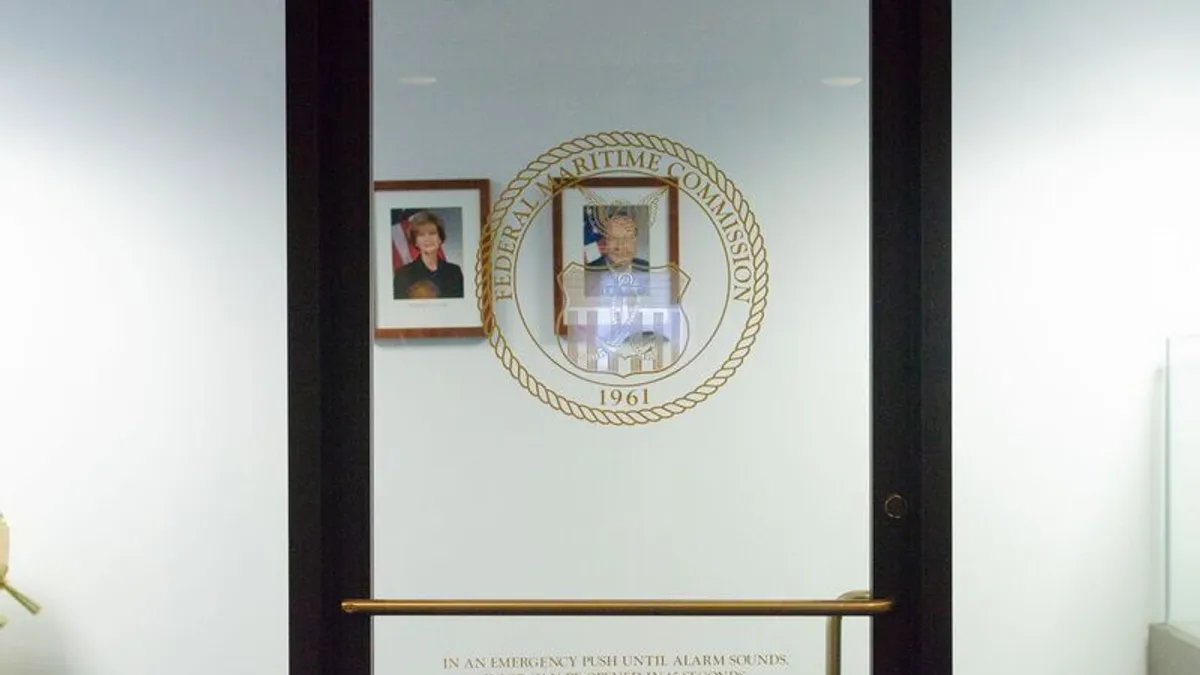Dive Brief:
- The Federal Maritime Commission (FMC) will standardize language used to apply to detention and demurrage fees, according to a press release.
- The decision comes as part of a set of recommendations outlined by Federal Maritime Commissioner Rebecca Dye in the final report of Fact Finding Investigation 28. The agency voted to act on the recommendations during a meeting on Dec. 7.
- Language surrounding the fees will be standardized in early 2019 by a set of Innovation Teams, a group of private sector stakeholders convened for a limited time by the regulator.
Dive Insight:
When the FMC began its investigation of detention and demurrage fees, it set out to determine whether the fees were "just and reasonable."
Now, nine months after the investigation's start, the agency found the charges are not only just and reasonable, they're also helpful for the supply chain.
"The investigation found that demurrage and detention charges can incentivize cargo to move expeditiously and that standardizing practices for when these fees are levied would improve velocity at ports," the press release reads.
There is an issue to be fixed, though. In both the interim and the final report of Fact Finding Investigation 28, the agency outlined a need for nationwide language to standardize what the charges are for and how they are applied.
"As the Interim Report explained in some detail, industry terminology is not used consistently by carriers and marine terminal operators, which may cause confusion," the final report reads. "The only question going forward is how to define the terms at issue and how to implement standardization."
The report outlines two paths for standardizing language: based on either the source of the charge, or the location where the charge originated.
The first option, recommended in the interim report, would recognize detention charges as fees applied to the use of a container, whereas demurrage fees would be paid for the use of terminal land or space. The second option would use the "traditional definitions," wherein detention fees apply for the use of a container outside of a terminal, and demurrage is charged for the use of both terminal space and equipment within it.
The Innovation Teams will have a mandate to standardize language for demurrage and detention practices, along with finding commercially viable solutions that address three other themes outlined in the press release:
- Clear billing practices and a dispute resolution process
- Guidance around the evidence required to resolve a dispute
- Practices that would facilitate "consistent notice" of container availability
The teams are a separate body from the Shipper Advisory Board, a group of stakeholders that will advise the FMC on emerging issues in the commercial supply chain. The board was also created as a result of the recommendations outlined in the final report of Fact Finding Investigation 28.
In a statement to Supply Chain Dive, FMC spokesman John DeCrosta said the Shipper Advisory Board is a longer-term group than the Innovation Teams, and will not be involved in the work of these teams. The Innovation Teams are exclusively dedicated to addressing the four themes above.















